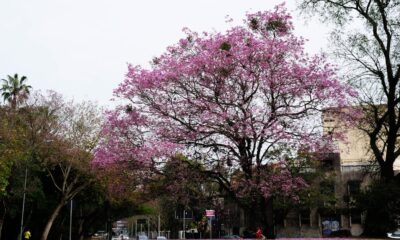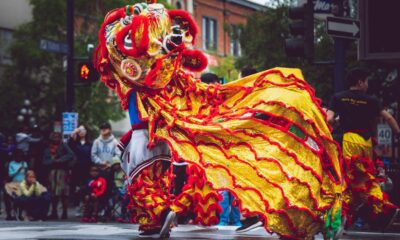blog
The Kouga’s Biting Habit: Understanding and Addressing this Behavior
Published
1 year agoon
By
Yash-
Table of Contents
- The Kouga’s Biting Habit: Understanding and Addressing this Behavior
- Understanding the Kouga’s Biting Behavior
- The Implications of the Kouga’s Biting Habit
- Addressing the Kouga’s Biting Habit
- 1. Education and Awareness
- 2. Habitat Conservation
- 3. Responsible Tourism
- 4. Collaboration with Local Communities
- Q&A
- 1. Are Kougas dangerous to humans?
- 2. Can the biting behavior be trained out of Kougas?
- 3. How can I protect my livestock from Kouga attacks?
- 4. Are there any successful case studies of managing the Kouga’s biting behavior?
- 5. How can I report a Kouga sighting or incident?
- Summary
The Kouga, also known as the African wild dog or painted dog, is a fascinating and endangered species native to sub-Saharan Africa. While these animals are known for their unique social structure and hunting techniques, they also possess a biting habit that can be both intriguing and concerning. In this article, we will delve into the reasons behind the Kouga’s biting behavior, explore its implications, and discuss effective strategies for addressing this habit.
Understanding the Kouga’s Biting Behavior
The Kouga’s biting behavior is primarily driven by its social structure and communication needs. These animals live in packs, which consist of an alpha pair and their offspring. Within the pack, biting serves as a form of communication, establishing dominance, and maintaining social order. It is a way for the Kouga to express its intentions, emotions, and establish boundaries.
Furthermore, biting is also an essential component of the Kouga’s hunting strategy. When hunting in packs, they rely on coordinated efforts to bring down their prey. Biting plays a crucial role in immobilizing the prey and ensuring a successful hunt. It allows the Kouga to deliver a precise and powerful bite, targeting vital areas of the prey’s body.
The Implications of the Kouga’s Biting Habit
While the Kouga’s biting behavior is natural and serves important purposes within their social structure and hunting strategies, it can have implications when interacting with humans or domestic animals. The strength and precision of their bite can cause severe injuries, and their wild nature makes them unpredictable in certain situations.
For humans living in areas where the Kouga’s habitat overlaps with human settlements, encounters with these animals can be dangerous. It is crucial to understand their behavior and take appropriate precautions to minimize the risk of bites and potential conflicts.
Addressing the Kouga’s Biting Habit
Addressing the Kouga’s biting habit requires a multi-faceted approach that focuses on both the animals and the human communities they interact with. Here are some effective strategies:
1. Education and Awareness
Increasing public awareness about the Kouga’s behavior and the importance of coexistence is crucial. Educational programs, community workshops, and public campaigns can help people understand the reasons behind the biting behavior and learn how to respond appropriately in encounters with these animals.
2. Habitat Conservation
Protecting the Kouga’s natural habitat is essential for their survival and reducing potential conflicts with humans. By preserving their natural environment, we can minimize the chances of encounters and promote a healthy balance between wildlife and human settlements.
3. Responsible Tourism
Tourism can play a significant role in supporting conservation efforts and promoting responsible interactions with the Kouga. Encouraging ethical tourism practices, such as maintaining a safe distance, not feeding the animals, and respecting their space, can help minimize the risk of bites and ensure the well-being of both the animals and visitors.
4. Collaboration with Local Communities
Engaging with local communities living near Kouga habitats is crucial for successful conservation efforts. By involving them in decision-making processes, providing alternative livelihood options, and addressing their concerns, we can foster a sense of ownership and cooperation, reducing potential conflicts and promoting peaceful coexistence.
Q&A
1. Are Kougas dangerous to humans?
While Kougas are wild animals and their biting behavior can be dangerous, they generally avoid human interactions. However, it is important to exercise caution and respect their space when encountering them in the wild. Following safety guidelines and seeking guidance from local authorities can help minimize the risk of incidents.
2. Can the biting behavior be trained out of Kougas?
The biting behavior is an innate part of the Kouga’s natural instincts and social structure. While some training techniques can help manage their behavior to a certain extent, completely eliminating their biting habit is unlikely. It is more effective to focus on understanding and addressing the behavior through conservation efforts and responsible interactions.
3. How can I protect my livestock from Kouga attacks?
Protecting livestock from Kouga attacks requires implementing appropriate measures such as secure enclosures, electric fencing, and guard animals. Additionally, working closely with local conservation organizations and seeking guidance on best practices can help minimize the risk of conflicts between Kougas and livestock.
4. Are there any successful case studies of managing the Kouga’s biting behavior?
Several conservation organizations and researchers have successfully implemented strategies to manage the Kouga’s biting behavior and reduce conflicts with humans. For example, the African Wildlife Foundation has collaborated with local communities in Zimbabwe to develop early warning systems and implement non-lethal deterrents, resulting in a significant reduction in Kouga-related incidents.
5. How can I report a Kouga sighting or incident?
If you encounter a Kouga or witness an incident involving these animals, it is important to report it to the relevant local authorities or conservation organizations. They can provide guidance, collect valuable data, and take appropriate actions to ensure the safety of both humans and the Kouga population.
Summary
The Kouga’s biting habit is a natural behavior driven by their social structure and hunting strategies. While it can be concerning when interacting with humans or domestic animals, understanding and addressing this behavior is crucial for promoting coexistence and conserving this endangered species. By focusing on education, habitat conservation, responsible tourism, and collaboration with local communities, we can minimize conflicts and ensure the long-term survival of the Kouga.
You may like
Mobility Scooter


Sideways Market: Navigating the Fluctuating Trends
Understanding Market Volatility Market volatility refers to the degree of variability in the price of a financial instrument within a...


Enhance Your iPhone with Adorable Cute Wallpapers
Looking to jazz up your iPhone screen with some cuteness? Discover the impact of adorable wallpapers on your device's look...


Glow Berry Prime: The Science Behind its Skincare Revival
Discover the transformative power of Glow Berry Prime in skincare with its potent blend of 20% Vitamin C, 2% Hyaluronic...


Glov Beauty: Eco-Friendly Products Review | Glov Beauty Reviews
Discover Glov Beauty's eco-friendly products like the Glov On-The-Go set with 500+ uses and the gentle exfoliation offered by the...


Unlocking Drake’s FPS Lyrics: How Gaming Influences His Music
Discover how Drake's lyrics in the first-person shooter-inspired track "War" reflect the influence of FPS games on his music. With...


Defeating a Fire-Breathing Dragon: Strategies for Mage Survival
Prepare yourself for an intense battle as we explore how to face a dragon capable of reaching temperatures over 2000°F....


Exploring Student Life at Glitties Eckerd College
Discover the dynamic student experience at Glitties Eckerd College with a plethora of club options, competitive sports, and community service...


Discover Success Stories with Money6x Real Estate Strategy
Discover the lucrative world of real estate investing with Money6x strategy! Uncover real-life success stories of investors achieving impressive 8-12%...


Get an Inside Look at Julion Alvarez’s 2024 USA Tour
Discover the meticulous planning behind Julion Alvarez's 2024 USA tour! Dive into the world of setlist curation, choreography design, and...


Enhancing Connections through Diversity & Active Listening
Learn how treating peers with empathy and actively listening can enhance relationships and boost innovation. The article emphasizes the significance...
